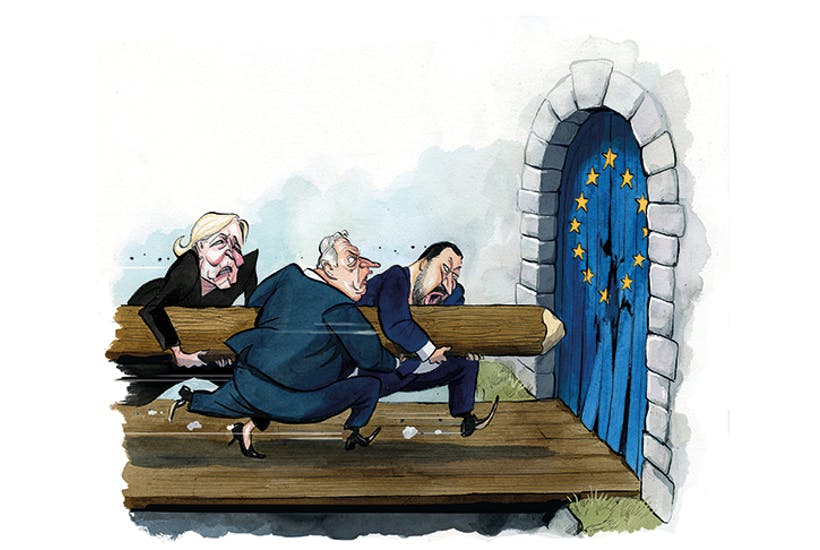As we move into 2019, two big elections could shake up the rest of the year. In May, the European elections could see an unprecedented eurosceptic populist surge. Across the continent, politicians like Marine Le Pen and parties like Germany’s AfD are receiving more support. Fredrik Erixon also writes in this week’s cover that, notably, the populists are maturing to play the political game. So is the EU about to be fundamentally changed by the political outsiders? Fredrik talks to us on the podcast, joined by Charles Grant, the Director of the Centre for European Reform, who says that, in response, the pan-European moderates will become more cohesive:
‘The moderate parties in the European parliament – the centre right and the centre left… – will work together to make sure that the EU can do its business. Legislation will pass because these moderate forces will work together as a centrist bloc.’
Back home, the spectre of a general election looms large. Katy Balls, the Spectator’s Deputy Political Editor, writes in this week’s issue that ‘it’s hard to think of a time when an opposition leader has had such a promising start to the new year.’ With the Conservative party imploding and the Brexit clock ticking down, Corbyn has a clear shot at Downing Street – provided, that is, that he can get Labour through the Brexit business unscathed. And that’s certainly not a given. On the podcast, Katy is joined by Conor Pope, deputy editor of Progress, a centre-left campaign group. Progress is campaigning for a second referendum, and Conor dismisses Labour Brexiteers who want to trigger a general election if and after Theresa May has passed her deal:
‘They seem to believe that their economic agenda would simply not be deterred by the fact that an economy might be crashing.’
And last, is it okay to call a woman a girl? Quentin Letts got into trouble for calling Julia Hartley-Brewer a ‘big strong girl’. Watch here:
Mark Mason treads carefully through this minefield in this week’s issue, and on the podcast he’s joined by feminist writer Julie Bindel. For Julie, it’s all about context:
‘I would rather be called a girl by a patriarchal but very polite, well-meaning Tory, than I would be called a woman by Owen Jones.’
Tune in and don’t forget to let us know what you think.







Comments